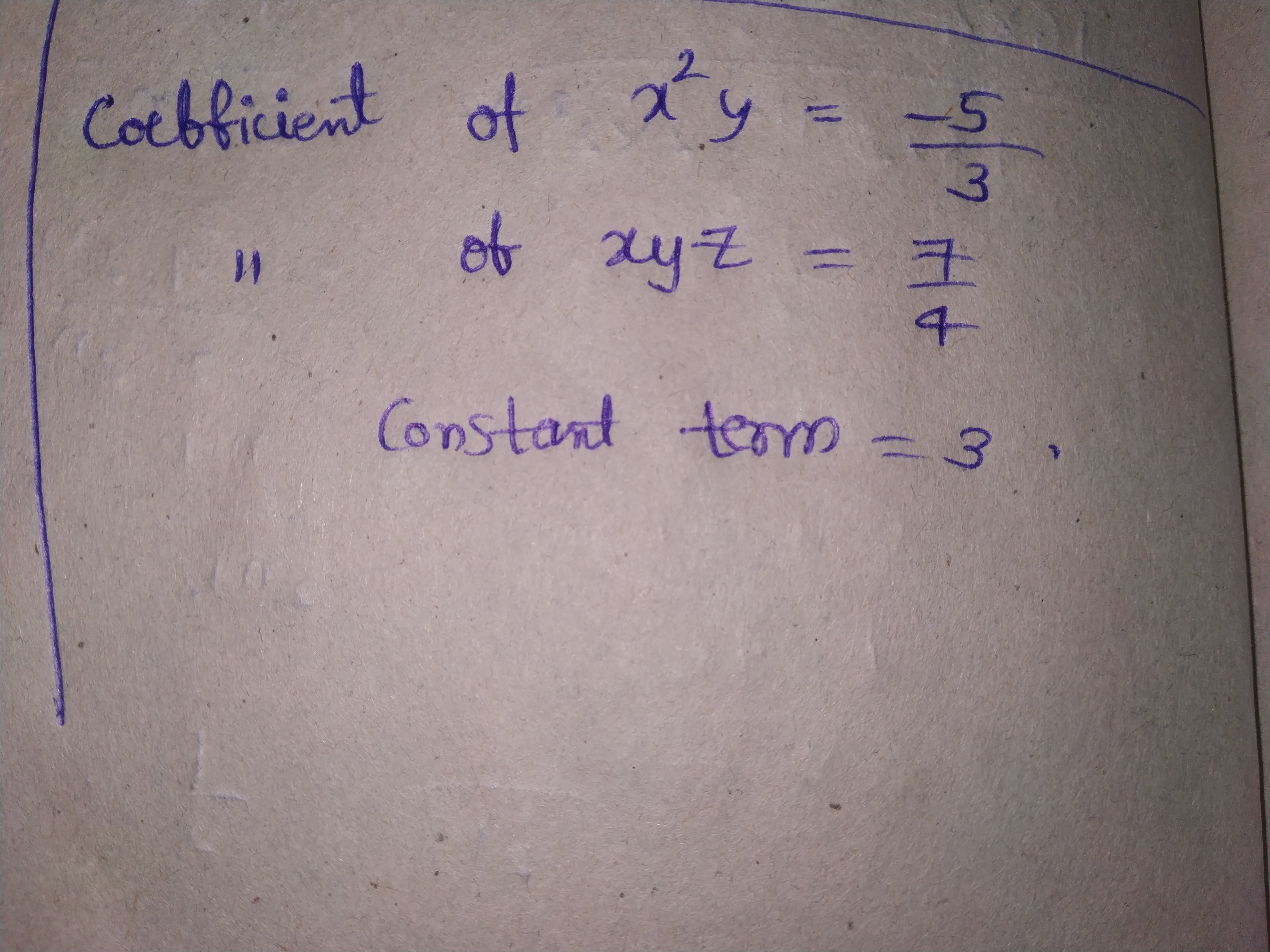Numerical coefficient of
In mathematics, a coefficient is a number or any symbol representing a constant value that is multiplied by the variable of a single term or the terms of a polynomial.
In algebra, a numerical coefficient is a numerical factor associated with a variable in an algebraic expression. It is the constant multiplier that scales or adjusts the variable within the expression. Algebraic expressions typically take the form of a combination of constants, variables, and operators, and the numerical coefficient is the numerical part of a term that multiplies the variable. Understanding numerical coefficients is crucial for simplifying expressions, solving equations, and analyzing the relationships between variables. In more complex algebraic expressions and equations, terms may have different numerical coefficients, contributing to the overall structure and behavior of the mathematical statement. Numerical coefficients are a fundamental concept in algebra, forming the basis for manipulating and interpreting algebraic expressions. Skip to content.
Numerical coefficient of
.
However, a coefficient can be any natural numbernegative numberdecimals, or fraction.
.
A combination of constants and variables connected by the signs of fundamental operations such as addition, subtraction , multiplication and division is called an algebraic expression. Every single entity in an algebraic expression is called a Term. In the term 4 x y, for instance, 4, x and y are its factors. Here, we can clearly see that 4 is the numerical factor while x and y are literal factors. Now that we have understood the meaning of factors let us now understand what we mean by the coefficient of an algebraic expression. In a term of an algebraic expression, any of the factors with the sign of the term is called the coefficient of the product of the other factors.
Numerical coefficient of
Constants are the numbers that have a fixed numerical value and variables are the numbers that can take various numerical values. The value of an expression depends upon the values of the variables of an expression. The concept of an algebraic expression is well understood when there is a clear idea about the terms, factors, and coefficients of an algebraic expression.
Whitney houston you tube
Why are all rational numbers not integers? A coefficient is a number or an alphabet that is multiplied by a variable of a single term or the terms of a polynomial. Share your suggestions to enhance the article. Explore math program. A coefficient cannot be zero because when we multiply 0 as a coefficient with any variable, the value of the term results in 0. How to Find a Coefficient? Pearson Correlation Coefficient. Answer: Therefore, the numerical coefficients are 3 and Share your thoughts in the comments. Sri Lanka.
If you're seeing this message, it means we're having trouble loading external resources on our website. To log in and use all the features of Khan Academy, please enable JavaScript in your browser.
A coefficient cannot be zero because when we multiply 0 as a coefficient with any variable, the value of the term results in 0. Are whole numbers closed under subtraction? Numerical Coefficient 5. The question "coefficient of a constant" is meaning less as there is no topic of coefficient if there is no variable. Skip to content. Suggest changes. Look at the image below showing the leading coefficient in the general form of a polynomial. We make math exciting. Answer: Therefore, the numerical coefficients are 3 and Work Experiences. Engineering Exam Experiences.


I can ask you?
You have hit the mark.
Do not take in a head!